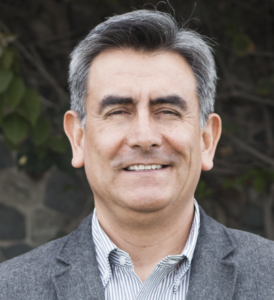As climate change continues to disrupt agricultural production, challenging our ability to feed a growing global population, we continue to refine our research objectives, making faster and longer strides to transform food, land and water systems that the world’s most vulnerable communities depend on.
While the challenges we face appear evermore complex, the basics of our root, tuber and agrifood system science have not changed. We listen to our stakeholders to learn what they need to improve their lives and what they want in terms of more resilient and nutritious crops. Then we work with our partners in the lab and experimental station, using the input to breed improved varieties of potato and sweetpotato that can grow in a wide range of conditions. Together, we test these varieties in the field, help build the skill sets to ensure proper agronomic practices for optimal harvests and catalyze inclusive value chains that benefit women and youth.
When we are successful, we collaborate with governments, the private sector and humanitarian organizations to scale up these innovations for rapid distribution.
Climate change and the COVID-19 pandemic have shown that CIP’s work is vitally important for ensuring sustenance and nutrition across a wide range of environments, and this was apparent in 2021.
Peru is home to the world’s great potato biodiversity and most of its 3,000 native potato landraces are conserved in the CIP genebank, available to share around the world. To ensure that Andean farmers benefit from that biodiversity, the genebank has developed a relationship with rural Peruvian communities by providing them disease-free seed potatoes of rare cultivars lost in the field to multiply and share with local farmers. It is this kind of reciprocal investment that continues to advance potato and sweetpotato science while providing support to local communities around the world that make it possible.
Seed-borne diseases are a major cause of low yields in root, tuber and banana crops, constituting a persistent threat to the incomes and food security of the hundreds of millions of smallholder farmers in Africa, Asia and Latin America who depend on them. Due to the high cost and low availability of quality seed, CIP has focused on transforming farmer access to high-quality seed by sharing technologies and teaching proper cultivation techniques to farmers, while also creating opportunities for those farmers to sell clean seed in the market. In Kenya alone, CIP has contributed to an increase in potato production that reached USD 430 million annually and supports nearly 4 million people along the value chain.
The legacy and impact of CGIAR’s research programs will continue for many years thanks to the tremendous collaboration they fostered. The program on Roots, Tubers and Bananas, hosted by CIP, produced 13 tools and technologies dubbed “Golden Eggs,” some of which are now being adopted by the 33 new CGIAR research initiatives. Innovations developed under that program are boosting the potential of root, tuber and banana crops that more than 300 million people below the poverty line in developing countries depend on.
With the support of staff and partners and the generosity of our funders, we are confident we can find more solutions to help stem the effects of climate change and ensure a more prosperous and sustainable planet for generations to come.

Helen Hambly Odame
Chair, Board of Trustees

Oscar Ortiz
Director General a.i.

